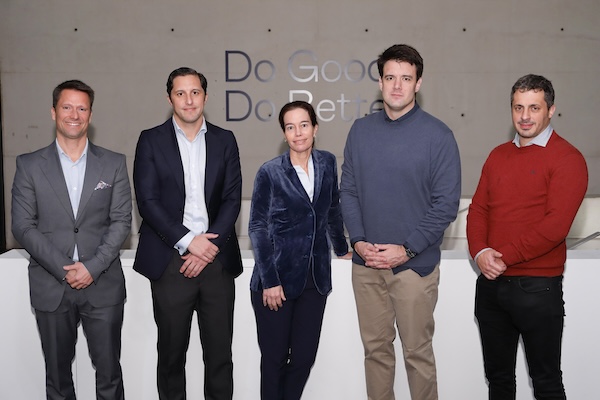At the conference, participants reflected on the role that the corporate governing body should play in identifying risks and opportunities in the dynamic technological environment in which we operate
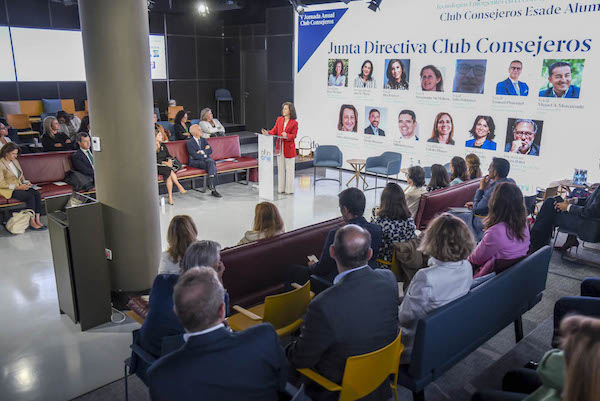
Cyber risk is a critical issue in terms of the continuity of companies, the potential loss of reputation, and regulatory fines, and we are increasingly aware of this. Likewise, other technological developments that are already having an impact on our society, like the universalization of the use of artificial intelligence and the introduction of quantum technology, are going to have direct repercussions on companies’ business models. How to promote the use of all these new developments to solve such major issues facing today’s organizations as sustainability and using them as a lever for the development of new business opportunities are areas that boards of directors must anticipate and promote.
This is why the 5th Esade Alumni Directors Club Annual Conference examined the reasons why boards of directors should be concerned with issues like generative artificial intelligence and the development of quantum computing, with the perspective and experience of CEO’s, board members, and experts that share their vision of the matter.
The role of machines

After the presentation by Mario Lara, director of the Center for Corporate Governance and Esade Madrid, and Rosa M. Sanz (AMP 07/ Consejeros 20), president of the Esade Alumni Directors Club, Ramsés Gallego, International Chief Technology Officer in OpenText Cybersecurity, took the floor for his talk entitled “It’s not Machine Learning. It’s Human Teaching!,” in which he claimed that governance is essential to facilitate innovation in an ever-changing business environment.
“One of the main disruptions is machines, algorithms, which expand our human weakness, everything we’re not so good at,” Ramsés Gallego said.
Machine learning, a subdiscipline of AI, uses vast amounts of data and statistics to analyze prognoses in behavioral patterns based on four models: supervised, unsupervised, augmented learning, and deep learning. It can act without supervision, simply by learning from its own mistakes. “The algorithm just about knows everything at once, everywhere. It amplifies, multiplies, and expands our limitations,” Gallego explained.
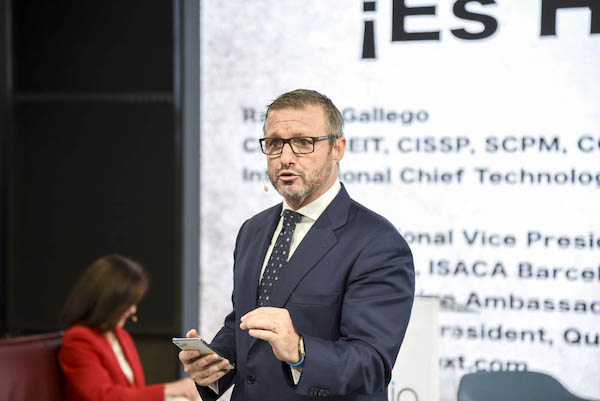
He claims that the time has come to question the limits – if there are any – on the use of these technologies and what the future holds. So, the issue is not merely automatic learning but how we humans should properly teach machines.
IA and quantum computing

The next panel debated the role of the Board regarding Artificial Intelligence, with Rita Estévez (Consejeros 17), board member at Línea Directa and MoraBanc, as the moderator, and Pilar García Ceballos-Zúñiga, board member at Amadeus and Renta 4, and Armando Martínez Polo, PwC-Technology Consulting Leader, as the guest speakers. Next came a second round table which analyzed the present and quantum future with Ana Plaza (Consejeros 18), board member at Línea Directa, Corporación Financiera Alba, Globalvía and VP AECC, as the moderator, and Lola Elejalde (Consejeras AEB’21), director of Internationalization at Innobasque, and Esther Villar (EMBA24), Quantum Technology team leader at Tecnalia, as the guest speakers. In fact, IT security, biomedicine, the development of new materials, and the economy are some of the areas that could undergo a major revolution thanks to the advances in quantum computing. In finances, companies can optimize their investment portfolios and improve systems to detect fraud and simulations.
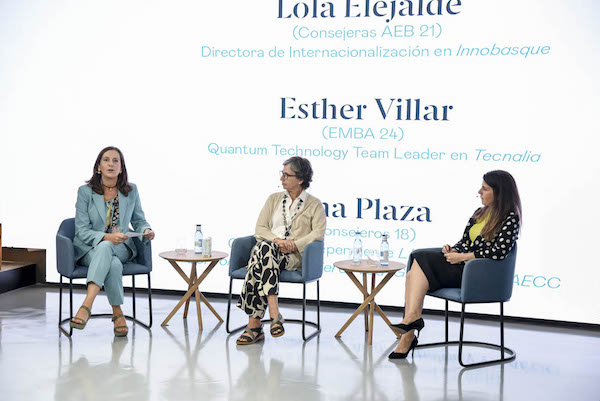
Ready for the change
The conference also featured a talk by José Luis Vallejo, the founder and president of SNGULAR, who spoke about “Change Strategy Better Than Change in Strategy.” As Vallejo explained, Sngular uses being constantly prepared for changing by investing in changing agilely as its survival strategy.
“The speed of adaptation requires an effort and has a cost. It also entails a change in leadership to become more humanistic. So, technology affords us options and enables us to dismantle the current value chain to explore other types of combinations, simulating scenarios with agility and taking a step before others do to take advantage of our assets,” Vallejo says.
But he insists that we should know where we’re going. A board member should reflect on where the company is going and the importance of being prepared for change, without being afraid to make mistakes and with the agility to accept them and be willing to change again.
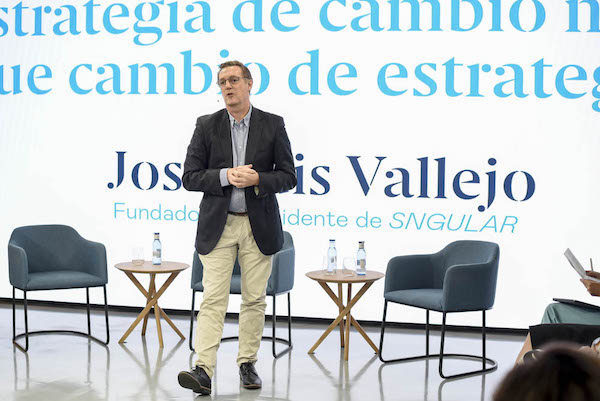
Darío Gil, Senior VP and Director at IBM Research, stressed that we are at a very exciting time for quantum computing and are going to keep making exponential progress with neural networks and more heterogeneous architectures. They help enhance performance and recast the idea of information with heterogeneous systems that collaborate with each other, without the user having to understand the complexity of the processes.
“With AI and quantum computing, we are going to be able to solve problems ten or 100 times more quickly and efficiently. But we have to be able to defend why we want technology and what we want to achieve with it: what world we want so that we accommodate technology to human needs, and not vice-versa. Demystifying and understanding technology is essential for an ethics and governance action plan,” he said.
Regarding business strategy, Gil believes it is important to know if we want to be users or to create long-term value by sharing our data. Within an AI strategy, Gil recommends three value-creation patterns: investing in software, integrating external API’s to create diverse services, and participating in creating value with data.
During the conclusions, Rosa Sanz stressed that technology should enable us to rethink the business with agility and flexibility, while she also highlighted the importance of information. What all these new technologies share is that they highlight that the differential value is in data, since data enable a different business model to be developed. Board members should promote their recognition and be able to guide the company to design new models that enable the value of data to be mined. Ana Plaza, in turn, stressed that “we board members should reflect on whether we can do things more smartly and do away with legacies by putting technology at the service of people and being critical, thinking whether it makes sense for us.” She also recalled the importance of diversity on boards, which should include members with digital competencies.
Sponsor of the Esade Alumni Directors Club










